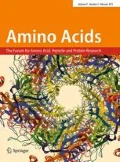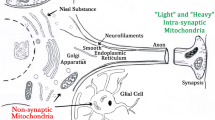Summary.
Phosphocreatine can to some extent compensate for the lack of ATP synthesis that is caused in the brain by deprivation of oxygen or glucose. Treatment of in vitro rat hippocampal slices with creatine increases the neuronal store of phosphocreatine. In this way it increases the resistance of the tissue to anoxic or ischemic damage. In in vitro brain slices pretreatment with creatine delays anoxic depolarization (AD) and prevents the irreversible loss of evoked potentials that is caused by transient anoxia, although it seems so far not to be active against milder, not AD-mediated, damage. Although creatine crosses poorly the blood-brain barrier, its administration in vivo at high doses through the intracerebroventricular or the intraperitoneal way causes an increase of cerebral phosphocreatine that has been shown to be of therapeutic value in vitro. Accordingly, preliminary data show that creatine pretreatment decreases ischemic damage in vivo.
Similar content being viewed by others
Author information
Authors and Affiliations
Additional information
Received July 3, 2001 Accepted August 6, 2001 Published online July 31, 2002
Rights and permissions
About this article
Cite this article
Balestrino, M., Lensman, M., Parodi, M. et al. Role of creatine and phosphocreatine in neuronal protection from anoxic and ischemic damage. Amino Acids 23, 221–229 (2002). https://doi.org/10.1007/s00726-001-0133-3
Issue Date:
DOI: https://doi.org/10.1007/s00726-001-0133-3



